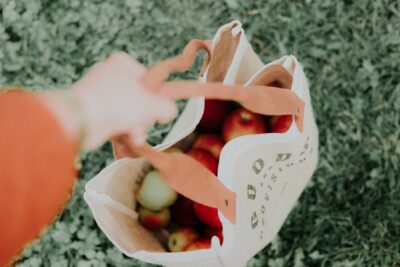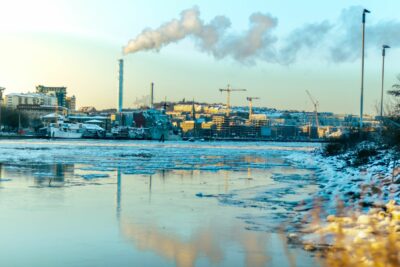Food waste has been part of the sustainability conversation for some years now, yet we have seen little progress on reducing food waste and its impacts. This is in part because food is now treated as a profit-making commodity, whose value is based on its financial worth, not its actual worth.
We also still rely on animal agriculture as a primary method of producing food, an approach which is inefficient and wasteful, and only encourages higher waste at all stages of food production and consumption.
What Is Food Waste?
The term ‘food waste’ usually refers to the food intended for human consumption that is thrown away instead of eaten. We think of it in terms of households wasting food but there is a huge amount of waste at farm level, too. The biggest waste, however, comes from producing meat, milk, and eggs instead of plant-based foods. For example, for every 100 calories you feed a cow, you only get two calories of beef back. That means 98 percent of the food was wasted. All animal products represent significant food waste.
How Much Food Is Wasted In The U.S.?
In U.S. households, around 30-40 percent of all food is wasted, whilst over five million households are considered to have very low food security. There is enough food for everyone but millions of people do not have reliable access to it. It’s heartbreaking.
How Much Food Is Wasted In The U.S. Every Day?
Around 330 million pounds of food is wasted across the U.S every day.
How Much Food Is Wasted Per Person In The U.S.?
On average, each American throws away around a pound (half a kilo) of food every day.
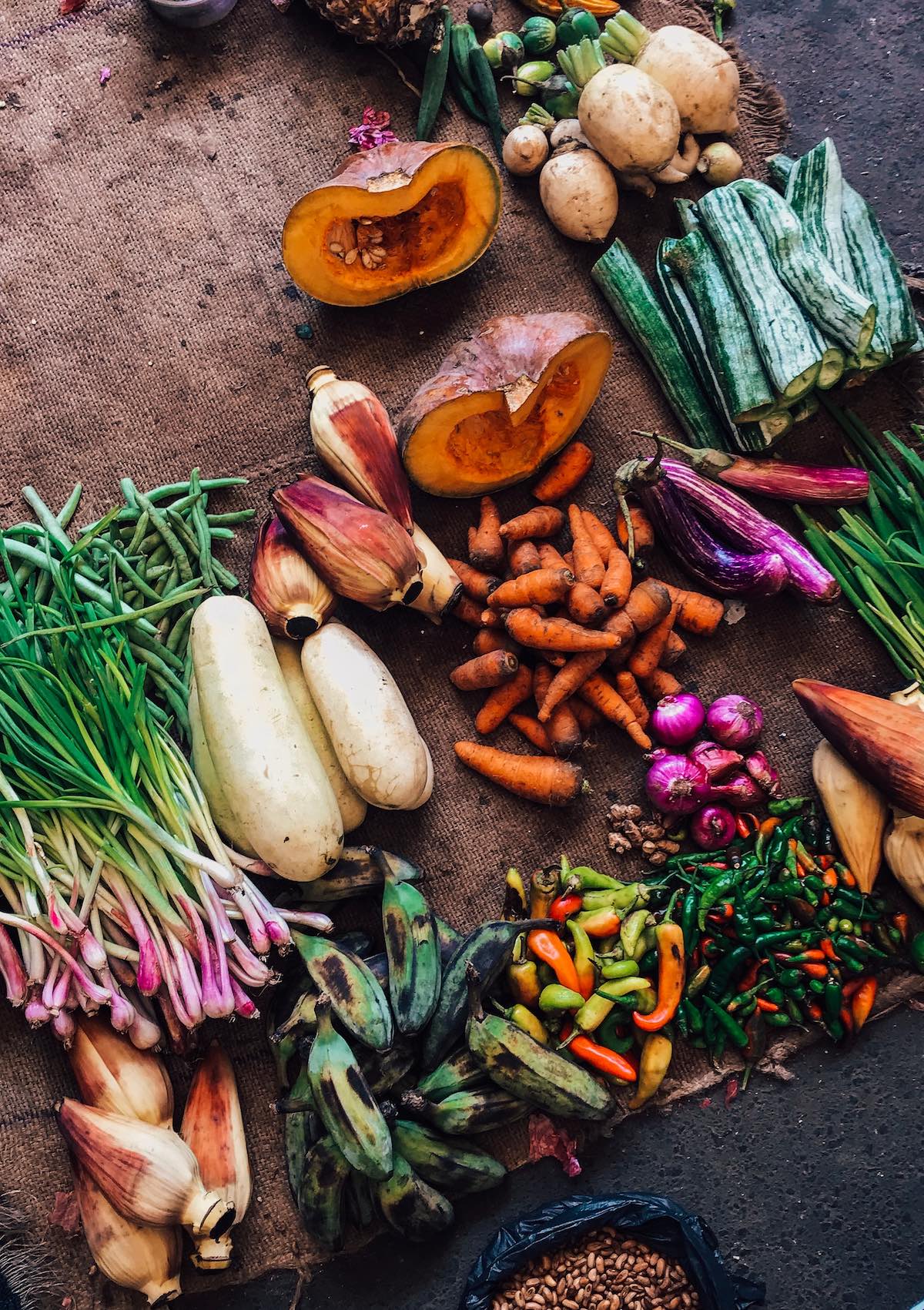
How Much Food Is Wasted In The World?
At present, about four billion metric tonnes of food are produced each year, but according to the FAO, around 1.3 billion tonnes of this food goes to waste.
This figure does not even account for the fact that we produce huge quantities of edible food but feed it to farmed animals instead of making it available to people. This “staggeringly inefficient” food system means we waste so much food, and that means we use too much land. If we moved away from farming animals, we would need 75 percent less of the available farmland to produce the same amount of food. With the wild animal populations plunging, returning this land to nature is essential.
What Causes Food Waste?
There are many reasons. Crops are wasted in fields because they do not meet certain standards. Billions of animals in the farming system do not survive the appalling conditions they are forced to live in and die before they can be slaughtered. Supermarkets have exacting standards for how fresh produce should look, which means smaller or misshapen fruits and vegetables may be discarded. There may also be supply chain issues that see fresh produce wasted because it was held up too long in transit.
Stores encourage shoppers to buy more than they need with special offers and deals, but these can lead that food to be wasted because it wasn’t really needed. Cooking is a skill that is often not taught and many people do not know how to utilize leftovers in the next day’s meal.
And biggest of all is the inefficiency of farming animals for meat, milk, and eggs.
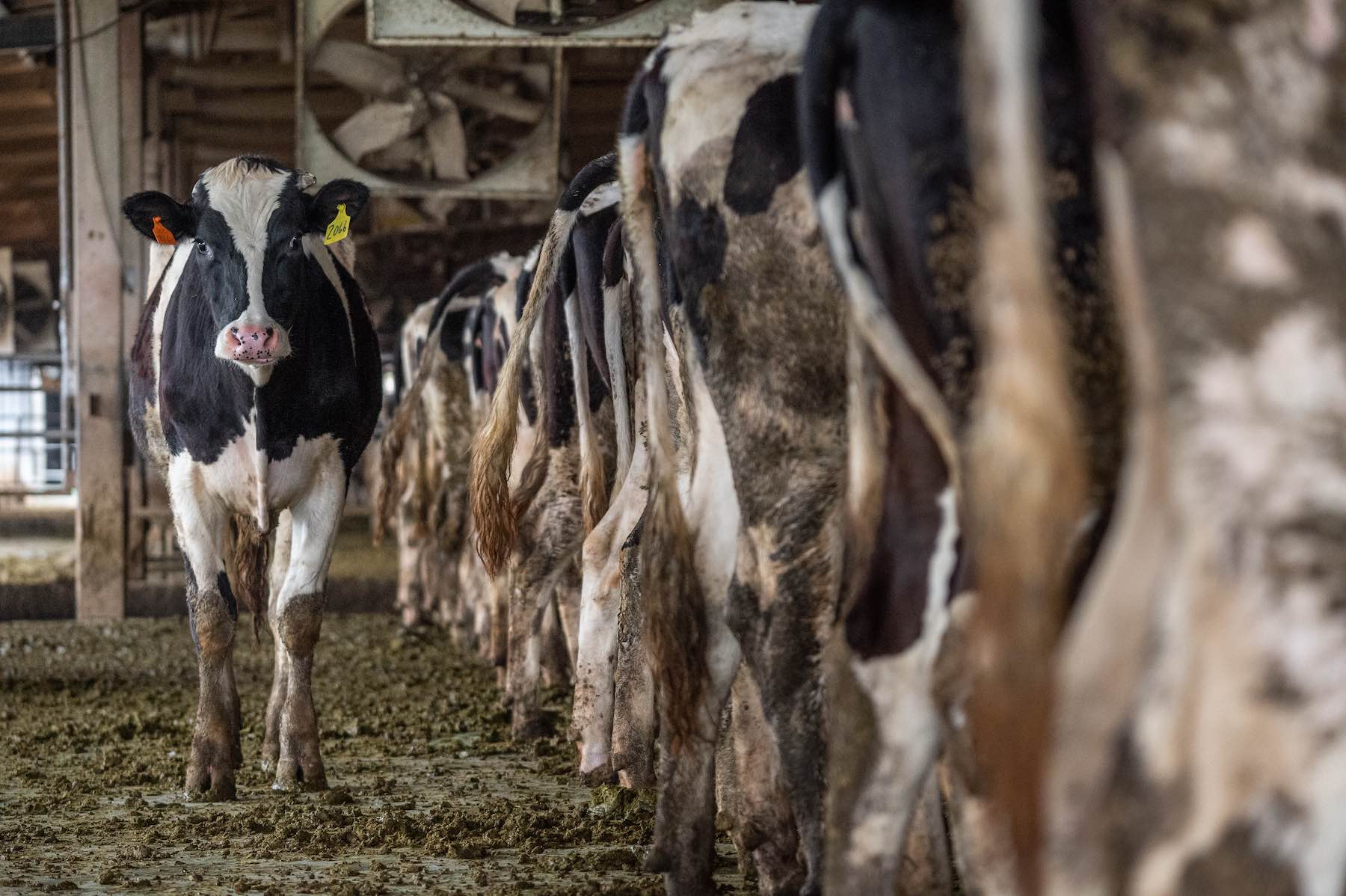
Raising Animals for Food
Raising animals for food is inherently inefficient. 99 percent of the meat eaten in the U.S. comes from factory farms that raise cows, pigs, chickens, turkeys, and fish for food. These farms use soy- and grain-based feed to quickly fatten up animals for slaughter, which is protein and carbohydrates that could be processed into food and eaten by humans.
More than three quarters of the world’s soy crop—the crop that leads to the most Amazon deforestation—is fed to farmed animals, not humans. Soy is a complete protein, which is cheap and healthy, yet we feed it to confined animals and get a fraction of the calories back in return. It’s a tragedy that people go hungry while the crops in their local area are shipped to factory farms around the world.
This is inefficient, wasteful, and unethical.
Production and Supply Chains
Food is lost and wasted all along our production and supply chains, from farm to fridge. This is due to poor refrigeration and processing technologies and other technological shortcomings.
Once again, if we stopped farming animals for food, this wastage would be negligible and manageable, as we would be able to sustainably produce enough food for all the people on the planet and more.
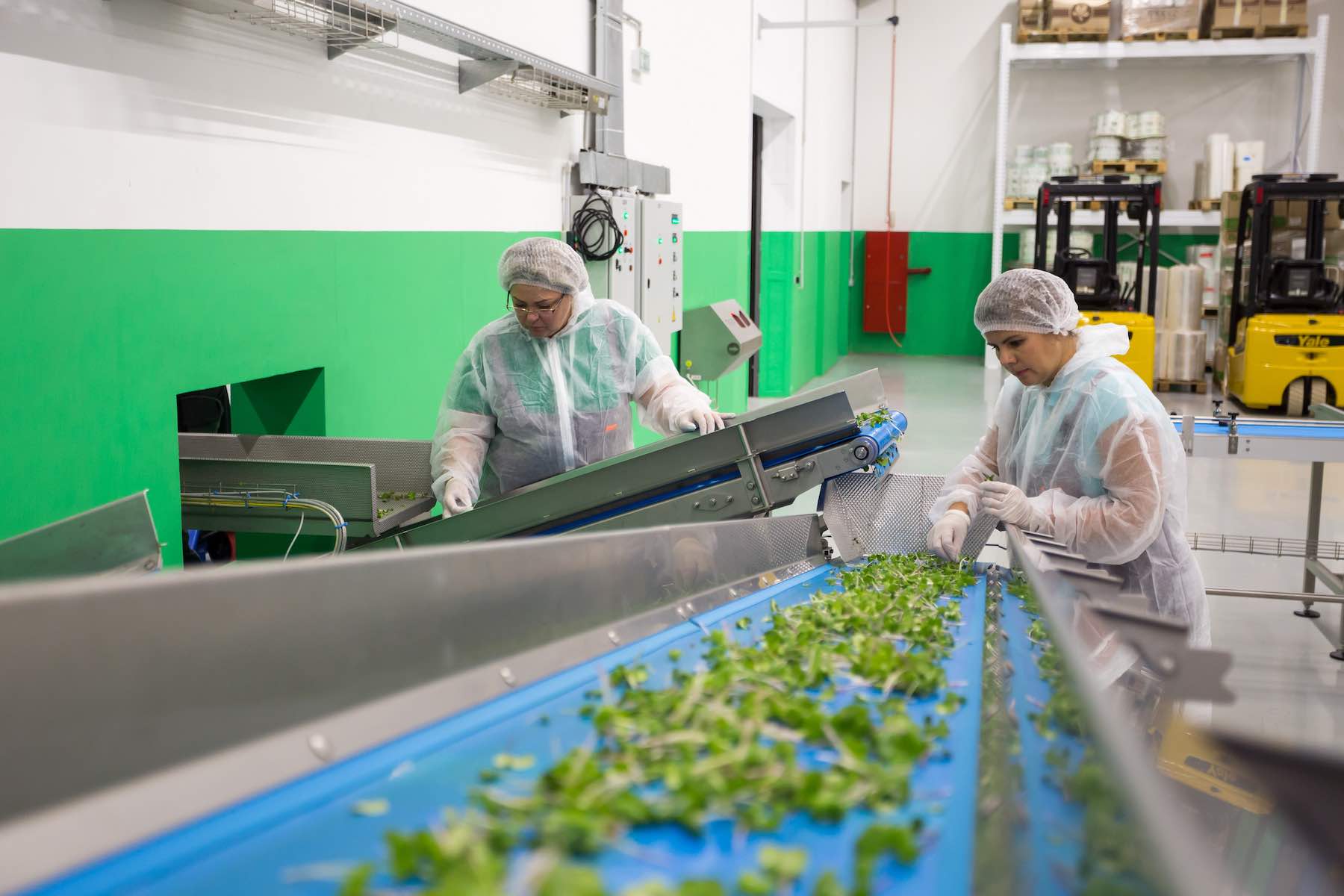
Unrealistic Cosmetic Standards
The majority of supply chain level food waste is due to wildly unrealistic cosmetic standards. People have become used to seeing perfectly shaped fruit and vegetables on shelves, so companies now do not see anything less as profitable. So anything misshapen, lumpy, or a little strange looking, goes into the bin or occasionally to feed farmed animals.
Companies are now waking up to this wastage and providing cheaper, ‘wonky’ fruit and vegetable boxes, but wastage levels are still unacceptably high.
Over-portioning and Over-purchasing
Writing a good shopping list, planning your meals, and sticking to this, is a great way to avoid household food waste. Many of us have busy lives and end up throwing away some of the food we buy, but this waste costs the planet. In the UK, food waste directly emits 25 million tonnes of CO2 equivalent. Consumers can help cut this figure by being more careful about buying and portioning habits.
What Are The Effects Of Food Waste?
Food waste affects people, animals, and the planet in a variety of ways.
Environmental Impact
If global food waste was a country, it would have the third largest carbon footprint on the planet. This is not something our planet can currently afford!
As we’ve established, raising animals for food is highly inefficient as we get less out than we put in. Animal agriculture is also one of the most environmentally damaging industries on the planet, so this inefficiency is even more shocking.
In the U.S., over a third of all food waste is animal products. So, we are raising animals, at great cost to the planet and the animals themselves, and then, because animal products are highly perishable, throwing one third of the resultant food products in the bin. This is an injustice, and until we shift to eating more plant-based foods, which are generally much less perishable, require much less land and fewer resources, and are better for the planet, this will keep happening.
Food waste is also bad for the planet, as the majority of it ends up in landfill, where it degrades and releases climate-harming methane into the atmosphere. According to the Environmental Protection Agency (EPA), two percent of carbon emissions, equal to half of all aviation emissions, come directly from food waste, although this figure may really be much higher.
Food Insecurity and Global Hunger
It’s unacceptable that we currently waste over a third of our food, yet globally, around one in ten people don’t have enough food to eat and many more are in food poverty.
Again, animal agriculture and its wasteful nature is at the heart of this problem. The meat, dairy, and egg industries are hugely land- and resource-hungry, so the developed world’s demand for animal products means land in poorer countries is occupied by large corporations that only intend to export the food they grow and make profit. Brazil, for example, is a major exporter of beef and soy that is destined for animal agriculture. Huge beef companies occupy large swathes of land for grazing and growing animal feed, whilst over 55 percent of people live with at least some level of food insecurity.
Wasted Natural Resources
When we waste food, we are not only wasting the food itself, but the water, energy, and human power it took to produce it. Our planet cannot afford such wastage.
Of course, some waste is inevitable, but we can reduce the impact of our waste by transitioning to plant-based foods as they are far more resource-efficient when it comes to water, land, and energy!
Wasted Life
Taking the life of animals who do not want to die, just for our own sensory pleasure, is one thing. But doing this, then discarding their bodies into the bin because we forgot to make time for dinner, compounds the injustice. We have become so detached from where food comes from that we have become numb to this devastating fact, but simply switching to a plant-based diet would mean this injustice does not need to continue.
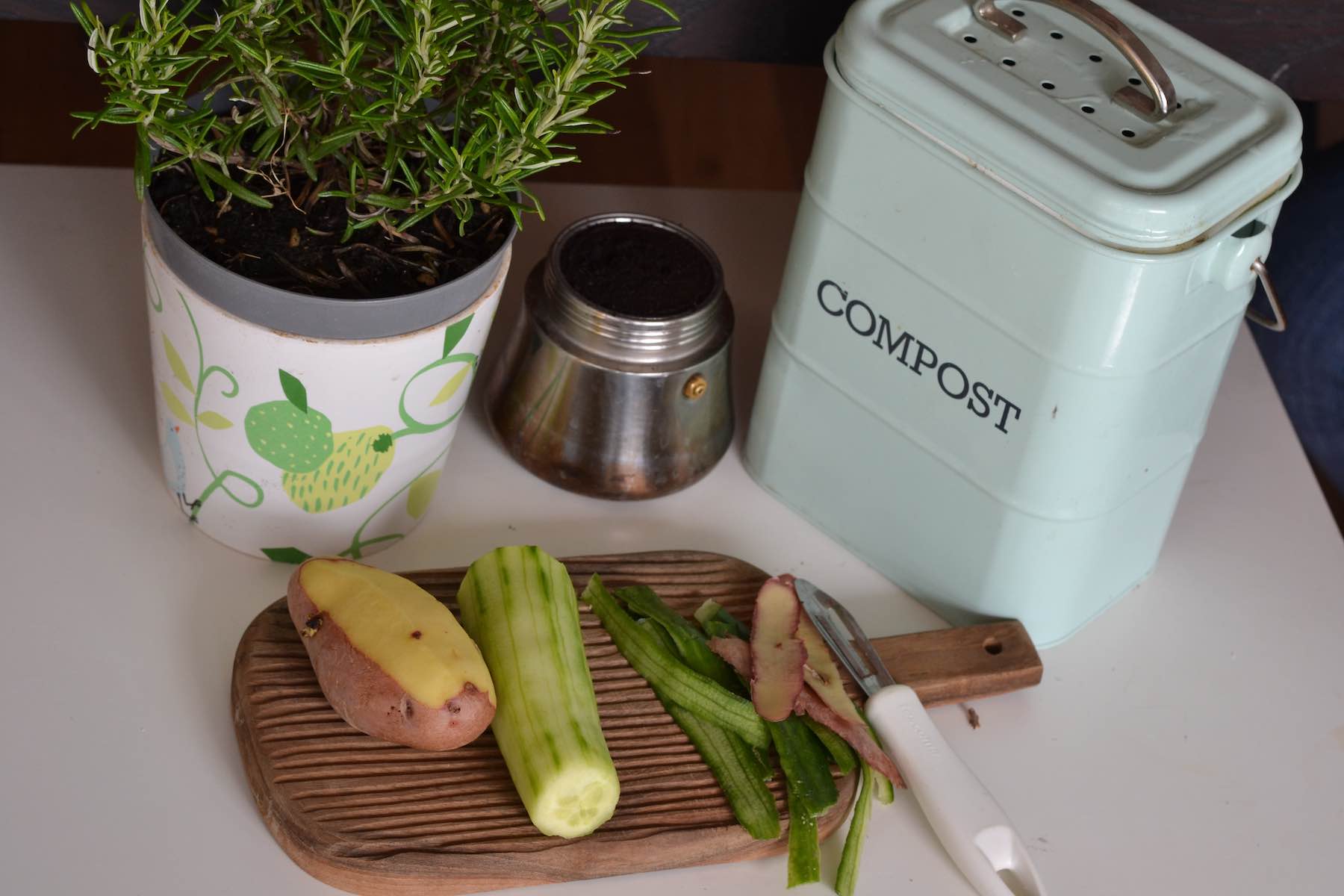
How To Reduce Food Waste?
We can all do our bit to reduce waste across the whole food system. Here are our top tips.
Diet Change
Shifting to a plant-based diet would make sure we are actually eating the food we grow, rather than feeding it to animals and therefore wasting two thirds of its potential calories. This would also reduce the amount of land, water, and energy it takes to produce our food, so any wastage is much less impactful on the planet’s resources.
Plant-based foods are also much less perishable so it is easier to waste less and maximize the food we buy.
Expiration Labels are Not Gospel!
Expiration labels are a guide and are often very cautious. It’s easy to assume food has gone bad because it’s past its expiration date, when in reality it’s just fine. The most foolproof way of making sure food is bad, is by smelling it. It could save you money and time, and will help protect the planet.
Use Your Freezer
The freezer is your best tool when it comes to reducing food waste. Many perishables can be frozen and kept for much longer than their shelf life, and often freezing fruit and vegetables locks in nutrients that are still present up to a year later!
Our favorite tip is to freeze any fruit that might go bad so you can make smoothies with it later. Or even better, slice and freeze ripe bananas, and when you fancy a sweet treat, blend them up with a spoonful of plant milk to make a delicious healthy ice cream.
Start Composting
Having a garden space is a luxury for many, but for those who do, it can be the key to cutting food waste almost entirely. You can compost plant food waste and when done correctly, it provides healthy and natural food for your garden. It’s a win-win!
Check out this guide on how to get started composting in your garden!
Make Lists & Plan!
Being organized is a key tool to reducing your waste. The two best things you can do are to make a shopping list (we recommend writing it when you’re not hungry!) and plan your meals in advance, then stick to it!
GenV is here to make it easy for you. By signing up to one of our vegan challenges, you will get a pre-filled meal plan with recipes and tips on how to shop and prep properly!
Share The Wealth You Have
We are living in challenging times, and more and more people in our society need food assistance. It’s likely your local food bank is getting used more than ever right now, so for those who have enough, please do whatever you can to donate and help others around you.
Until we change the way we consume and companies follow our lead to a more sustainable, fairer, and less wasteful food system, we must do what we can to help others through tough times.
Conclusion
Food waste is a frustrating problem, as it is largely an avoidable one. Yet we continue to throw away billions of tonnes of food every year, while millions of people across the world live in food poverty and insecurity, and the planet continues to suffer.
Corporate food producers and animal agriculture have a huge amount to answer for, as their commodification of the food system has meant food is now treated as a profit creator, not a common good that keeps people alive, and the evidence shows this only increases waste. This attitude towards food has to fundamentally change if we are to stop wasting so much and create a fairer, more just food system.
